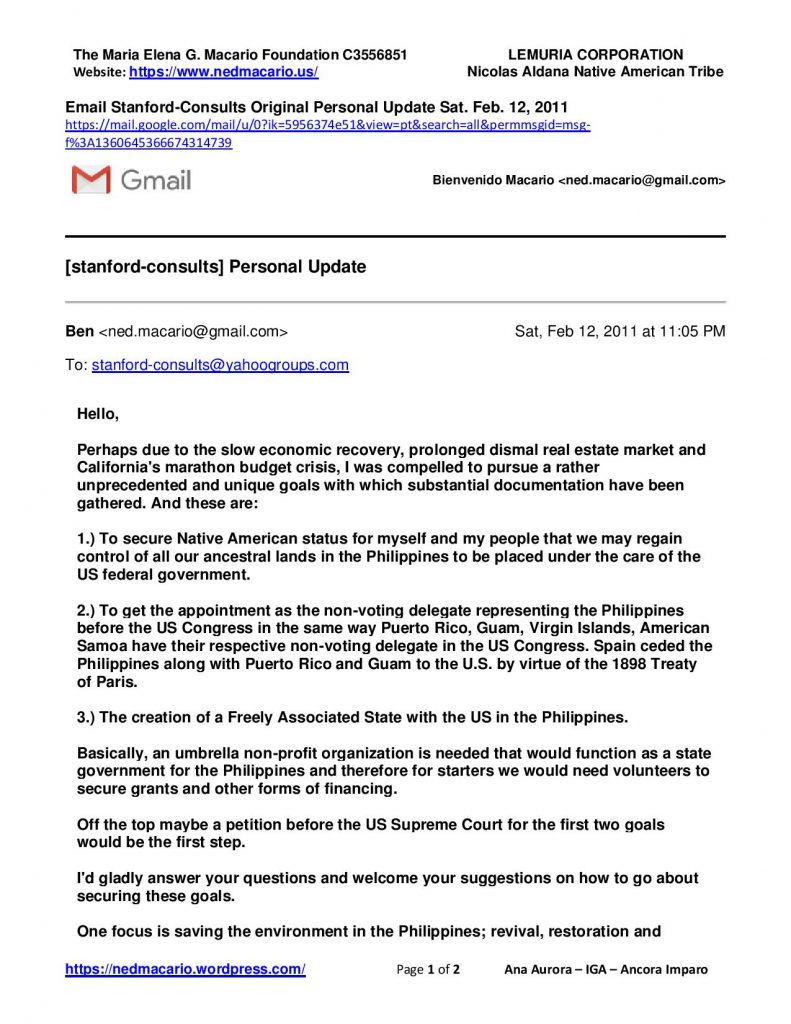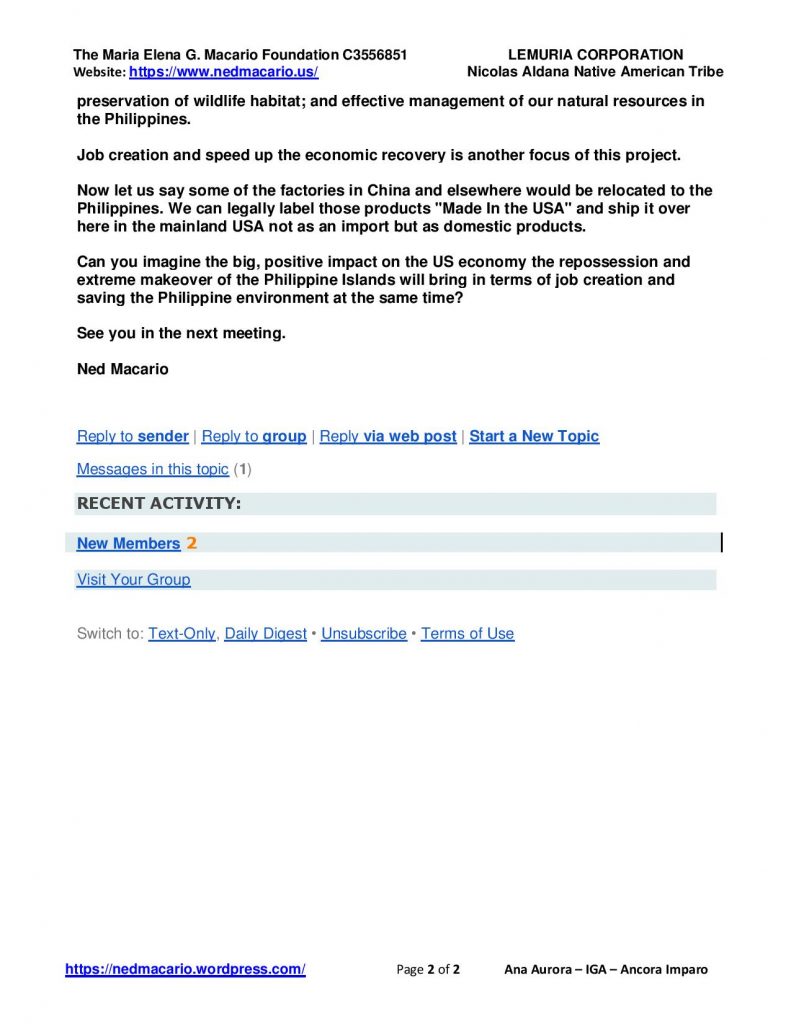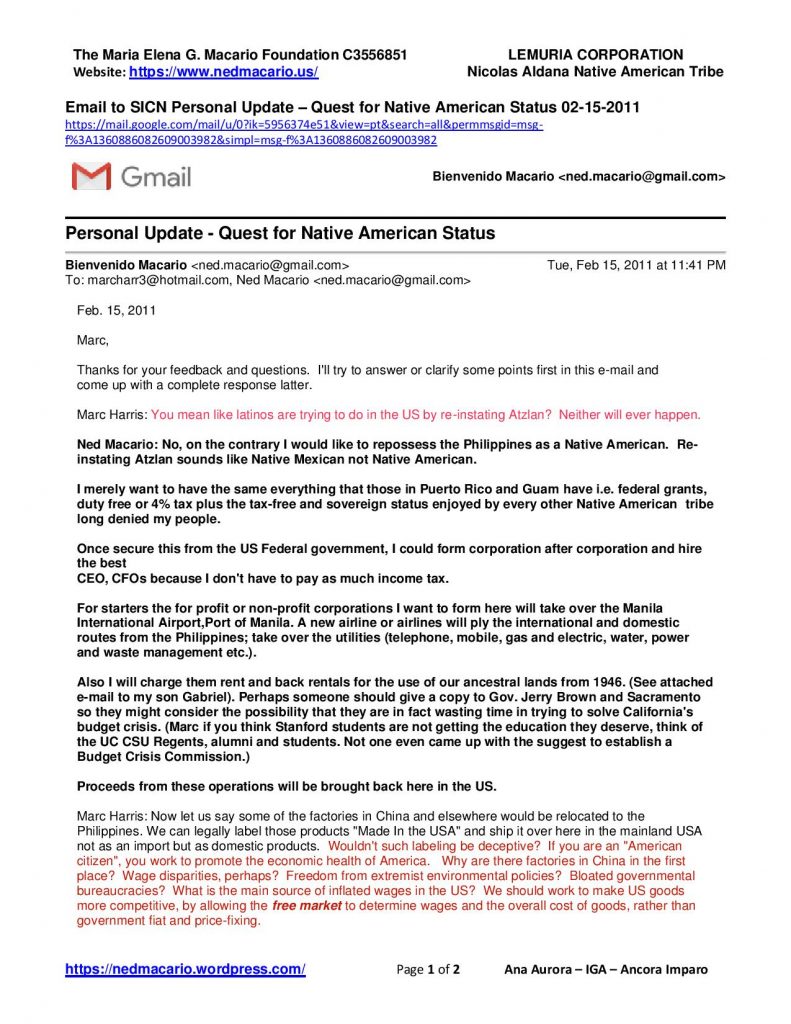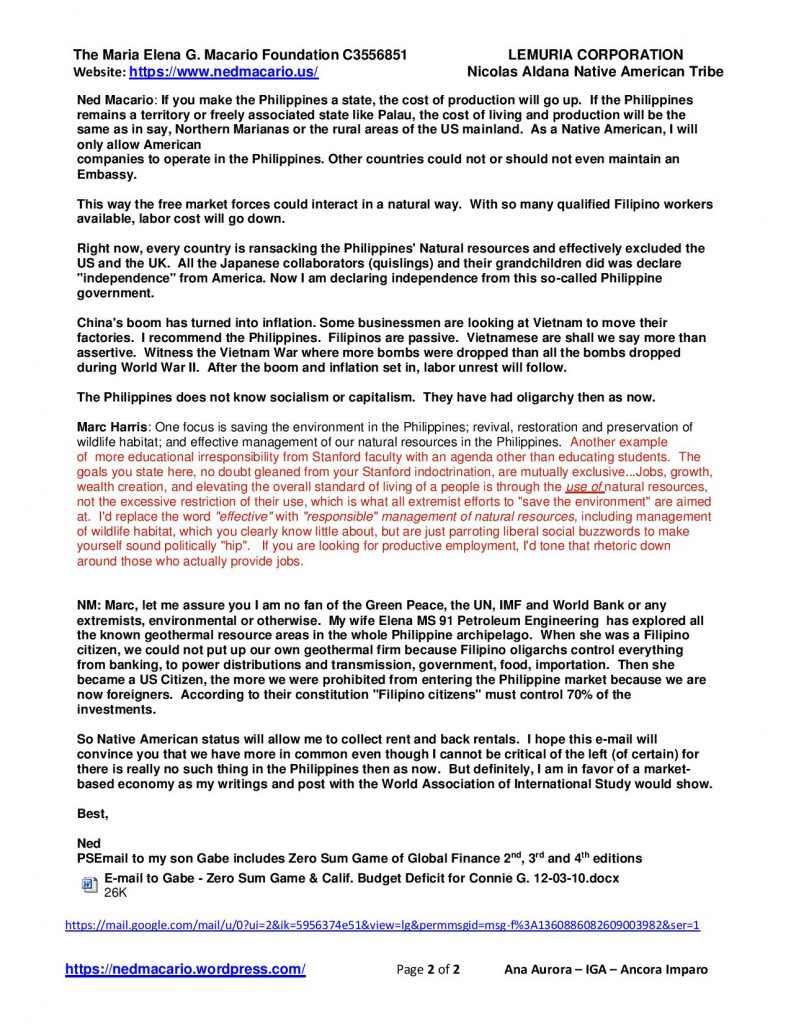By Eric Bellman October 12, 2012, 1:28 AM SGT
JAKARTA – The total number of chronically hungry people in Southeast Asia has plunged by close to 70 million in the last two decades thanks to economic growth and policies to feed the poor, but the number of people that regularly go to sleep with their stomachs growling in the Philippines has actually grown.
==================
Non-sequitur: Is it possible California is a colony of the Oligarchic Philippines & Sacramento just doesn’t know it?
News: British royal family worth more than $1 billion, report says
By Ron Recinto | The Lookout – Wed, Jun 6, 2012
Also in June Forbes magazine published the 40 richest Filipinos whose combined net worth totaled $47.43 billion. See:
Forbes 40 Richest Filipinos total networth
http://www.forbes.com/philippines-billionaires/list/
While the British Royal family goes back hundreds of years, twenty-five (25) years ago, there wasn’t a single Filipino on Forbes list of the richest men.
Unless there is a reasonable and acceptable explanation, this makes the wealth of the richest Filipinos “unexplained” and ill-gotten. Maybe the IMF, World Bank, ADB and the UN have an explanation.
Below is Zero Sum Game of Global Finance-4th Edition showing that despite the financial crisis of 2008 and the Great Recession, the 40 richest Filipinos continue to accumulate unexplained wealth. Thanks to the World Bank, IMF, ADB and the UN.
Zero Sum Game of Global Finance 4th Edition 12-29-10, updated 03-29-11 and 04-21-11
California Budget Deficit $16.0 Billion* as of 02-20-08
40 Richest Filipinos–Total Net Worth $16.2 Billion+ as of 10-18-07
California Budget Deficit $20.0 Billion@ as of 03-17-10
40 Richest Filipinos–Total Net Worth $20.4 Billion^^ as of 07-31-10
California Budget Deficit $26.6 Billion++ as of 03-29-11
40 Richest Filipinos–Total Net Worth $26.2 Billion~~ as of 03-09-11
+ ^^ ~~ – From Forbes Magazine
WAIS Posts on Zero-Sum Game of Global Finance
Ivy League Endowments Shrink by $26 Billion 2008-2009 (Bienvenido Macario, 04/26/11 4:48 am)
http://waisworld.org/go.jsp?id=02a&objectType=post&o=61503&objectTypeId=55753&topicId=111
Cuba: Obama to Allow Travel, Money Transfers (Bienvenido Macario, Philippines/US 04/14/09 4:13 am)
http://waisworld.org/go.jsp?id=02a&objectType=post&o=37081&objectTypeId=31331&topicId=1
US: on the Financial Crisis and Bailout+ (Bienvenido Macario, Philippines)
Posted September25, 2008
http://waisworld.org/go.jsp?id=02a&objectType=post&o=24935&objectTypeId=19185&topicId=1
Final comment: If the overseas aspect of this financial crisis is not contained by reforming, replacing or rivaling the World Bank, IMF and the UN, we’d be lucky to enjoy three years of recovery from this crisis before we are plunged to a deeper and more desperate downturn.
If this crisis happened between elections, it would have been crystal-clear to our leaders in Congress, the government, the private sector, investors, the media and the public that it was the collective fault of the World Bank, IMF and the UN that brought the crisis deep into this level.
Even as recently as Dec. 14, 2007, the World Bank continued to seek funds for debt forgiveness and in fact secured $16.5 billion~ in cash for the purpose. The California State budget deficit did not add up to $16 billion+ until Feb. 20, 2008.
======================
RivCo: Next Budget is About $23m in Red – May 1, 2012
Economists says the 2012-13 County budget pushes the deficit even higher than expected.
By City News Service – May 1, 2012
http://palmdesert.patch.com/articles/rivco-next-budget-is-about-23m-in-red
Enrile says US $30-M military aid an ‘insult’ – May 7, 2012
http://www.tribuneonline.org/20120507/headlines/20120507hea4.html#.T6fojGx0GkE.facebook
Washington’s offer of $30-million foreign military financing (FMF) to the country made during a high-level meeting between the Philippines and United States’ Foreign and Defense officials is an insult.
That’s how Senate President Juan Ponce Enrile viewed the military aid promised to Foreign Affairs Secretary Albert del Rosario and Defense Secretary Voltaire Gazmin, adding that it need not be sought by the government considering that such is a commitment made by the US under the Mutual Defense Treaty (MDT).
Malacañang, Enrile said, should not accept such offer.
“They should provide military equipment. (They should comply) not only with the MDT. They signed a military assistance agreement with the Philippines, so they should comply with it.
While Enrile would not highlight the fact that the US government opted to stay neutral in the Philippines’ tension with China over territorial dispute in the Scarborough Shoal, the reported offer to boost the country’s military capabilities came as an “insult.”
“If I were the Aquino government, I would say ‘thank you,’ I do not need your $30 million. We can provide that $30 million for ourselves.”




